Between Outlander and TURN, this has been a great year for the 18th century on television! But neither of those shows spoke to me quite as much as PBS Masterpiece’s Poldark. Here’s a breakdown of the plot and characters (no spoilers—I promise), in case you want to add another show to your lineup.
A handsome, troubled British soldier is wounded outside Yorktown during the American Revolution. His family assumes him dead. He returns to his family estate in Cornwall two years later to find his father dead, the love of his life engaged to another man, and his town full of unrest.
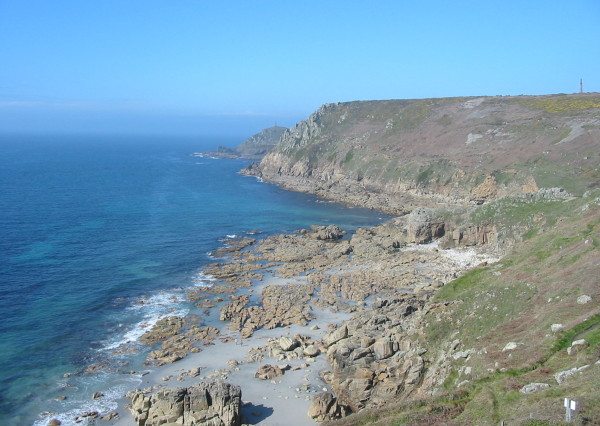 So begins Poldark, and through the seven episodes released this season, you watch Ross Poldark, his family, and his town grow and change over a period of several years. Poldark shows us the beautiful, heather-covered cliffs of Cornwall. But it also uncovers the depths of the darkest, dirtiest 18th-century English prisons. It explores the lives of the wealthiest gentlemen and ladies of the town as well as those of the poorest miners and farmers.
So begins Poldark, and through the seven episodes released this season, you watch Ross Poldark, his family, and his town grow and change over a period of several years. Poldark shows us the beautiful, heather-covered cliffs of Cornwall. But it also uncovers the depths of the darkest, dirtiest 18th-century English prisons. It explores the lives of the wealthiest gentlemen and ladies of the town as well as those of the poorest miners and farmers.
Ross Poldark, born a gentleman but finding himself with nothing, straddles both sides of a class divide. His struggle gives us an interesting and passionate guide through this unfamiliar world. He developed many of his ideas of equality and justice from his time in America, but struggles to apply them in the more rigid, traditional British system.
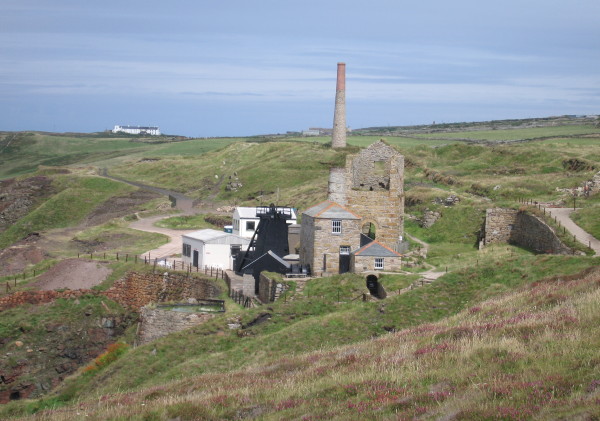 It’s fascinating to compare the world of Poldark with the colonial and Revolutionary world we portray here in Williamsburg. We too had class struggles between the rich and poor, the gentry and the working classes. Only here it is much more tied up in race and enslavement of a large segment of the population. Poldark often struggles to get credit and escape debt as his enterprises rise and fall, and in America, credit and debt are huge issues for planters and merchants as the Revolution approaches.
It’s fascinating to compare the world of Poldark with the colonial and Revolutionary world we portray here in Williamsburg. We too had class struggles between the rich and poor, the gentry and the working classes. Only here it is much more tied up in race and enslavement of a large segment of the population. Poldark often struggles to get credit and escape debt as his enterprises rise and fall, and in America, credit and debt are huge issues for planters and merchants as the Revolution approaches.
One of Poldark’s main adversaries in the show is a banker from a family of blacksmiths. Despite being one of the wealthiest people in the show, he is not considered gentry and has to fight constantly to be considered a gentleman. Here in Williamsburg, our blacksmiths talk about issuing credit to customers for the work. It’s easy to see how given time, a successful blacksmith might take the plunge into banking and issuing credit full time.
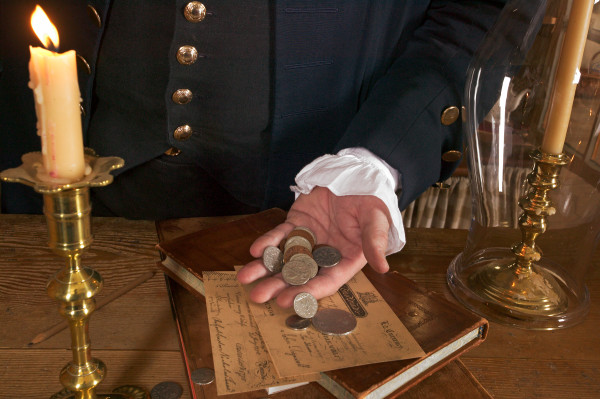 I’ve also enjoyed comparing the fashion and material culture in the show with what I’m familiar with here in the DeWitt Wallace Decorative Arts Museum and our extensive collections. While Poldark is set after the Revolution and in the mother country, much of the fashion is the same or similar. The costume designer has done a great job using clothing and wigs to show old vs. young and traditional vs. contemporary in the characters. Much of the material culture is accurate to this time period. As with any drama, there are a few clunkers (like 19th-century carriages in a few scenes) and an affinity for early 1800s top hats, but generally speaking, the 18th-century world it creates is very immersive.
I’ve also enjoyed comparing the fashion and material culture in the show with what I’m familiar with here in the DeWitt Wallace Decorative Arts Museum and our extensive collections. While Poldark is set after the Revolution and in the mother country, much of the fashion is the same or similar. The costume designer has done a great job using clothing and wigs to show old vs. young and traditional vs. contemporary in the characters. Much of the material culture is accurate to this time period. As with any drama, there are a few clunkers (like 19th-century carriages in a few scenes) and an affinity for early 1800s top hats, but generally speaking, the 18th-century world it creates is very immersive.
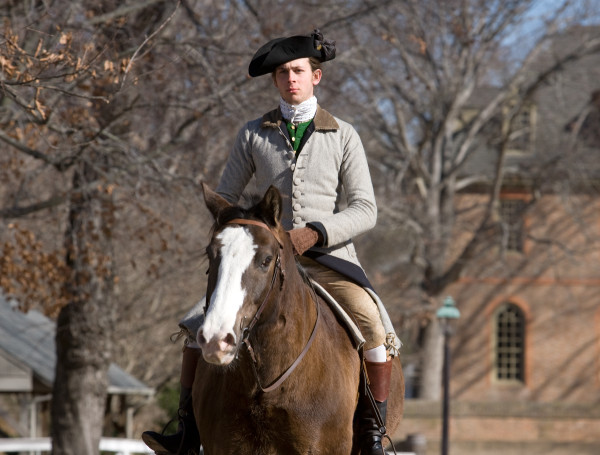 The season finale of Poldark was August 2, but some episodes are still posted online on PBS Masterpiece for viewing and the DVDs should be out soon. Colonial Williamsburg is excited that the 18th century is hitting screens once again!
The season finale of Poldark was August 2, but some episodes are still posted online on PBS Masterpiece for viewing and the DVDs should be out soon. Colonial Williamsburg is excited that the 18th century is hitting screens once again!
Are you a fan of the show? Let us know in comments! Did you watch and have questions about any of the 18th-century culture, customs, material culture, or events? Ask us here!
Guest Blogger: Claire Gould

Claire Gould is an Editor-Writer (and word nerd) in Educational Media with a passion for American History and civics. She edits the Teacher Gazette e-newsletter, manages the Colonial Williamsburg Education Facebook page, and writes and edits content for HERO, Teacher Institute, and many other projects.
She’s lived in Sydney, Chicago, New Jersey, and Delaware, but is now proud to be a Williamsburgian!
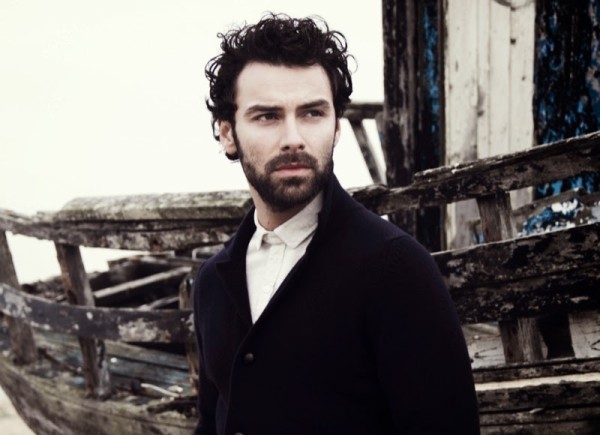


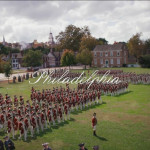
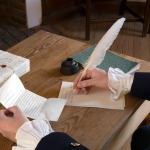
Danial Eguchi says
This is period drama is impeccably produced, which means if that six-week walking tour in the British countryside remains just out of reach, then this series offers just the dose of escape right from the comfort of your couch.
I love Turn and Poldark! The 18th century is my favorite time in history. Those two shows just make me want to go to Williamsburg even more than I get to already. I wish I could live in Williamsburg. Claire is so lucky.
Virginia Ware says
This really was an excellent account of what lilfe must have been like in 18th Century Cornwall and it wasnt always pleasant. Having seen the original Poldark and now BBC’s new version, I can say how well the author of the books captured the feeling of the time and what a fine job the BBC has done. Hooray that we are getting so many shows that take place in the 18th century and please keep them coming!!
Great series! What a great idea to have the last episode be a “cliff hanger” on a cliff!
Absolutely love Poldark. So glad people are flocking to watch historical dramas. There’s alot of junk on so it’s about time there’s excellent programs.
Gail, I haven’t personally seen Poldark but Claire’s review makes me want to check it out. I certainly am a big fan of TURN!